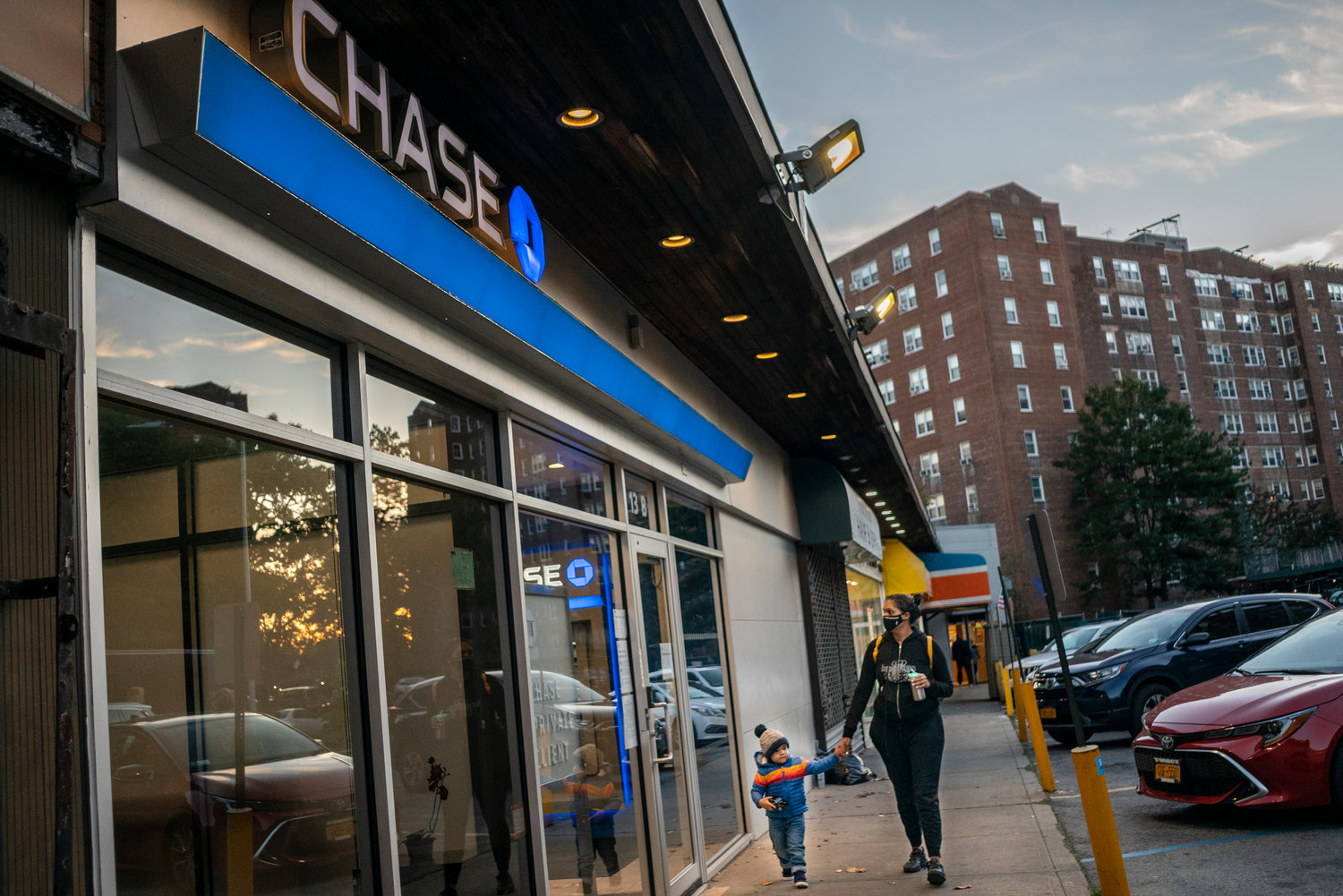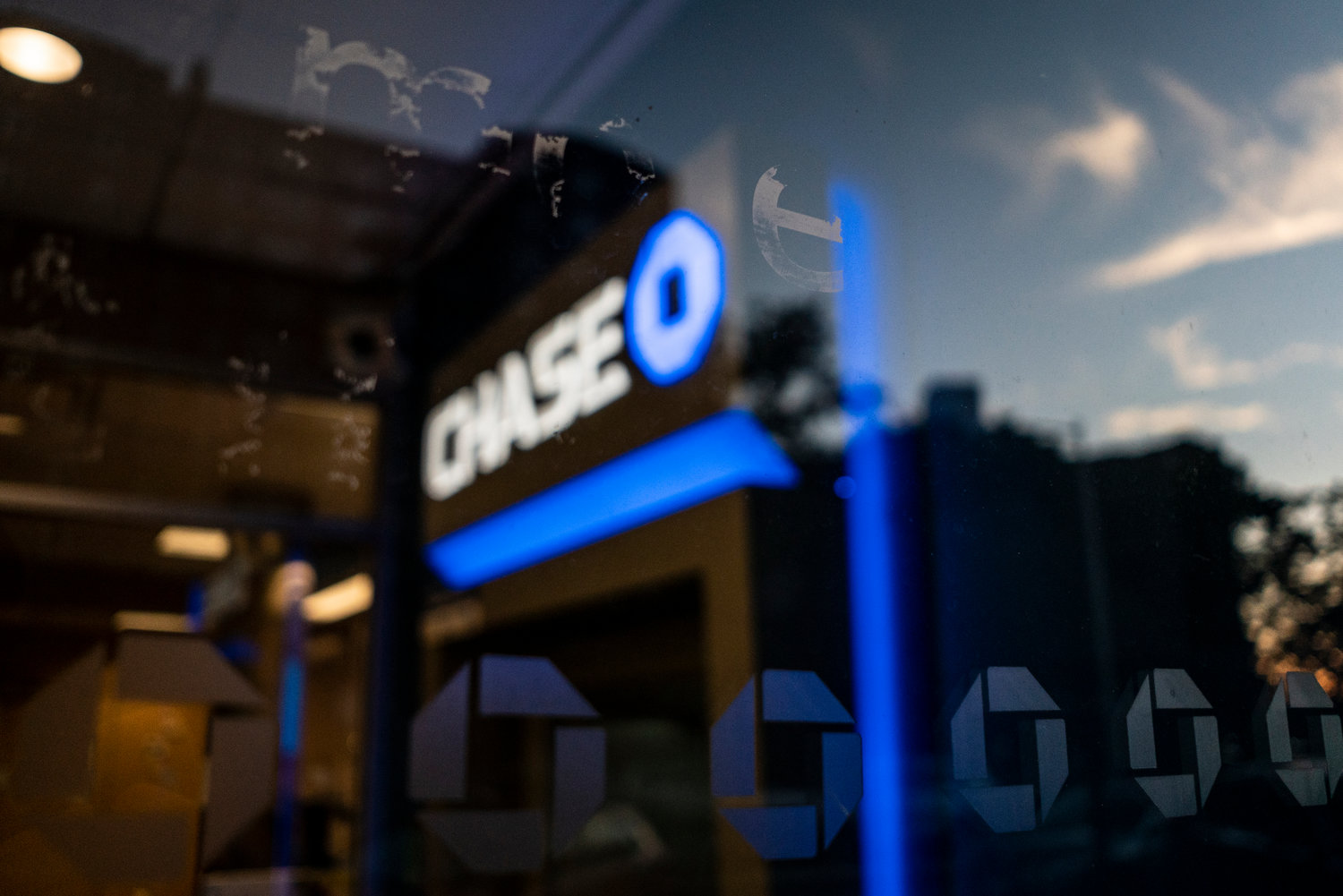Knolls Crescent bank looks to close — for real this time
It’s always a pleasant surprise when grassroots community activism actually gets the attention of those in power and leads to something positive. The residents of Knolls Crescent got a taste of this last year when they successfully delayed the closing of their local Chase Bank branch.
Those neighbors originally learned last October the branch at 13B Knolls Crescent was scheduled to close. But a push with some help from politicos through rallies and petitions earned a reprieve for the branch, keeping it open past December.
But all of this action only delayed the inevitable as Chase readies to shutter the location May 17. After much effort, it appears the community and public officials have exhausted all options, and short of a minor miracle, Knolls Crescent is about to lose a neighborhood bank.
Although many do their banking remotely these days without ever having to step inside an actual physical branch, there are many who depend on the friendly help of a teller to keep their finances in order, says Knolls Crescent neighbor Marion Friedman. If Chase closes the bank as planned, she believes it will devastate her community.
“Having this branch here is as important to us as our utilities,” Friedman said. “Although I understand it’s a private business and they’re entitled to do whatever they want to do, but we’re looking for some humanity here. It’s going to really hurt a lot of people if they close this branch.”
The Knolls Crescent Chase Bank is the only financial institution in the neighborhood, meaning those living and working around it rely on it for their financial needs, Friedman said. The area has a large senior citizen population — many of whom live in the Knolls Crescent co-operative where Friedman herself lives.
“A lot of us are disabled,” she said. “We find it very difficult to get around. We use walkers. A lot of people are in wheelchairs. We have aides.”
The branch — only a short walk from the co-op — is very convenient for elderly people in the neighborhood who still want to bank in person. This is important, Friedman said, because seniors like herself aren’t comfortable enough with technology to rely on online banking — something many banks are shifting toward.
But there are other Chase branches in this corner of the Bronx. One branch is just up Riverdale Avenue, while yet another is down the hill at Broadway and West 231st Street.
“The bank is extremely important for that particular area because it’s so isolated,” said Nick Fazio, chair of Community Board 8’s economic development committee. “There’s a very small but vibrant commercial corridor that provides essential services for many of those vulnerable, older adults that can’t easily commute outside of their immediate neighborhood.”
Fazio is referring to the small Knolls Crescent shopping center, which includes the bank itself, a Rite Aid pharmacy, a dry cleaner, and Ben’s Market — a small grocery store.
There are limited public transit options in Knolls Crescent, Fazio said. And topographically, it’s up on a hill, which isn’t easy for seniors with mobility issues to traverse.
Even months after the initial push to save the bank, Friedman and her neighbors are still getting the attention of some elected officials, like U.S. Rep. Jamaal Bowman. He argued Chase’s decision to close the branch is in violation of the Community Reinvestment Act — a law requiring federal regulators to encourage banks to meet the needs of low- and middle-income communities.
Bowman penned a letter to the Office of the Comptroller of the Currency — a federal agency with oversight of commercial banks — claiming Chase was hurting a vulnerable elderly community by closing this branch. Both state Sen. Alessandra Biaggi and Assemblyman Jeffrey Dinowitz — part of this elected trio who are not typically allies — also signed onto the letter.
However, the agency ruled the move by the bank’s parent company, JPMorgan Chase, to close the branch was a “business decision” that didn’t require its approval.
“At this point — that was our one hook — to get OCC involved,” said Ashley Torres, Bowman’s district office director. “Right now, (OCC is) basically saying (Chase is) good to close because it’s a business decision, it’s not a violation. And so, we can just flag it as a formality to Chase that this is important to the community. But it’s really in their ball court right now.”
Dinowitz and his son — newly minted councilman Eric Dinowitz — were among those who stood with some of the Knolls Crescent neighbors last October fighting to keep the branch open. The younger Dinowitz believes that rally — a long with a letter he penned to the corporation months before his election — delayed the branch closing.
Chase officials never shared what prompted them to delay the branch’s closure.
“We worked with elected officials (and) the community board to apply pressure to Chase Bank, a bank that has done rather well during this pandemic,” Dinowitz said. “It’s deeply disappointing that Chase Bank seems to only look at numbers and data, and we as elected officials look at people.”
However, numbers and data are important to investors in the financial company, which is valued at more than $450 billion. That data has showed Chase and other bank chains the cost of operating a physical bank branch typically outweighs the revenue generated there. Especially now that many customers simply bank online.
Commercial banks are closing branches around the country — more than 3,300 last year alone, a record high. The National Community Reinvestment Coalition says 14 percent of all operational U.S. bank branches closed between 2008 and 2020.
Last year’s coronavirus pandemic hasn’t helped keep those branches open, especially after it pushed even some technological stragglers to bank online instead. Isolated urban neighborhoods like Knolls Crescent as well as small rural towns are being hit the hardest by branch closures.
But Chase isn’t the only bank in town, Fazio said. With a space already set up to accommodate a bank, it might not be so far-fetched to have another one take its place.
Still, there’re no guarantees this will work, either.
“You have no assurances,” Fazio said. “Banks are going to make a business decision. We have to present to them a compelling case that this neighborhood is economically viable and that it will support them. And that’s what we’ll have to try to do if Chase leaves.”
Want to read this story in print? Click Here









